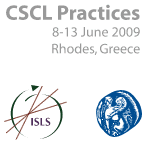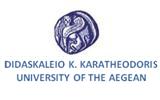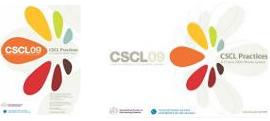
Program
Keynote speakers
CSCL2009 Conference will be honored by the following Keynote Speakers:
![]() Prof. Charles Goodwin, University of California at Los Angeles, USA;
Prof. Charles Goodwin, University of California at Los Angeles, USA;
![]() Prof. Pierre Dillenbourg, Swiss Federal Institute of Technology in Lausanne, Switzerland;
Prof. Pierre Dillenbourg, Swiss Federal Institute of Technology in Lausanne, Switzerland;
![]() Prof. Rose Luckin, London Knowledge Lab, Institute of Education in London, UK;
Prof. Rose Luckin, London Knowledge Lab, Institute of Education in London, UK;
Prof. Rose Luckin, London Knowledge Lab, Institute of Education in London, UK

Rosemary Luckin is Professor of Learner Centred Design at the London Knowledge Lab and an EPSRC Advanced Research Fellow. Her research explores how to most effectively scaffold learning across multiple technologies, locations, subjects and times. At the LKL she is part of a group of researchers who share an interest in applying participatory methods to the development and evaluation of technology enhanced learning experiences. This work is interdisciplinary and encompasses education, psychology, artificial intelligence and HCI. It investigates the relationship between people, the concepts they are trying to learn and teach, the contexts within which they operate and the resources at their disposal. She was appointed by the Minister for Schools as a non-executive director of Becta (the UK government agency leading the national drive to ensure the effective and innovative use of technology throughout learning) where she chairs their Research Advisory Group.
[http://ioewebserver.ioe.ac.uk/ioe/cms/get.asp?cid=4381&4381_0=13483]
Keynote talk: Participatory Learning in Context"
In this talk I will consider the concepts of participation and context as two key learning essentials that we need to understand in order to develop rich learning experiences that can be supported by technology. I will present a model of context that is grounded in the participatory sociocultural principle that an individual’s development is a collaborative interaction between that individual and her social and cultural environment. This model is called the Ecology of Resources and it operationalises a definition of context as the combination of interactions a learner experiences with multiple disciplines, people, artefacts and environments, across multiple physical spaces and times. There is much existing relevant research from a wealth of different disciplines including computer science, psychology, sociology and education that I will draw upon in my talk. I will however focus upon empirical evidence from two participatory design projects with learners aged 11 – 16 years, their teachers and mentors. The first project involves learners in a self-managed learning situation working with researchers to develop tools to increase their understanding of how they can use technology to best meet their learning needs. The second is a participatory science project that involves teachers and learners working with researchers to develop the concept and practical application of participatory science in the classroom so that learners can use technology to effectively access remote resources, collaborate with science projects and co-construct scientific explanations.
Each of these projects will be discussed in terms of the Ecology of Resources model in order to highlight how this model offers a useful conceptualisation of participation and context. This discussion will also identify some of the requirements we need to encompass when developing technology in order to support participation and build upon a learner’s context. These include the need to:
- Develop within learners the skills that enable them to build conceptual links between the networks of people, places and things that form their personal Ecology of Resources.
- Develop within teachers, tutors and peers a greater understanding of how the deep levels of learner engagement with technology can be translated into a higher level of critical engagement with the collaborative knowledge construction process.
- Embrace the idea that institutions, such as schools, have a key place within each learner's Ecology of learning Resources, but that their importance is as much about how they enable learners to build links between their experiences outside the institution as it is with how they support learning within the institution
- Offer learners greater agency in the creation of their learning contexts to fulfill the opportunity to move beyond the generation of content for learning by learners to the generation of contexts for learning by learners through which that content can be given meaning.
.
.
.
.
.
.











